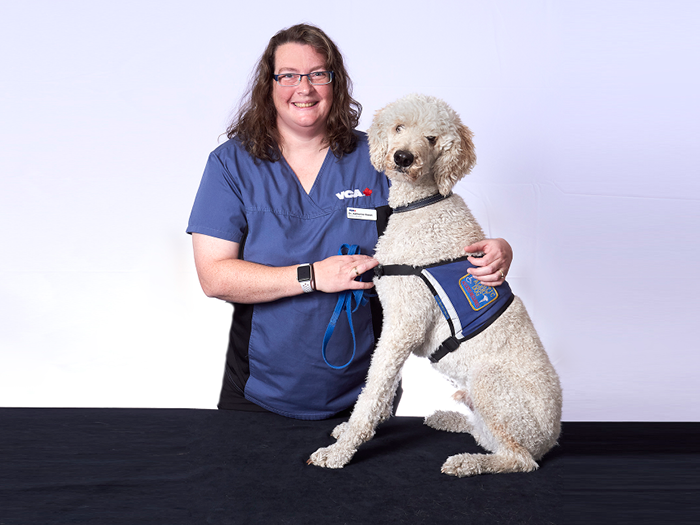The treatment of pet cancer is becoming more common. Pets are living longer and we now have access to more advanced diagnostic and treatment options. We know that this can be a stressful and confusing time, and veterinary oncologists are specially trained to guide you through the next steps. These steps may include confirmation of a suspected cancer diagnosis and "staging". The diagnosis tells us what the tumour is, while staging tells us where in the body there is evidence of the cancer. Staging tests can include blood and urine tests, microscopic analysis of samples of the tumour and nearby lymph nodes by aspiration or biopsy, and imaging (often x-rays, ultrasound, CT, and/or MRI).
Radiation may be used alone for tumour control or in combination with surgery, chemotherapy, and/or immunotherapy. The equipment and technology available at Western Veterinary Specialist & Emergency Centre allow precise delivery of radiation to minimize side effects. This technology also allows treatment of tumours that were once considered untreatable! Along with controlling tumour growth, radiation can relieve tumour-associated pain or other symptoms. It is delivered with an external beam by a machine called a linear accelerator (Linac). Treatment is non-invasive, like having an x-ray but at a much higher power. Your pet is not left radioactive and this treatment is an outpatient procedure.
Depending on your pet's tumour type/location and your goals, treatment schedule may vary. For some cases, patients are treated with 15 – 20 treatments on consecutive weekdays over 3 – 4 weeks. Other tumour types can be treated with stereotactic radiation therapy. This is a newer type of treatment, delivering larger individual doses with a lower total number of treatments (1 - 5). Side effects are possible, and before starting treatment, any anticipated side effects and their management will be discussed with you in detail. If you would be interested in learning more about the treatment options for your pet, a referral should be submitted by your pet's primary care veterinarian.


